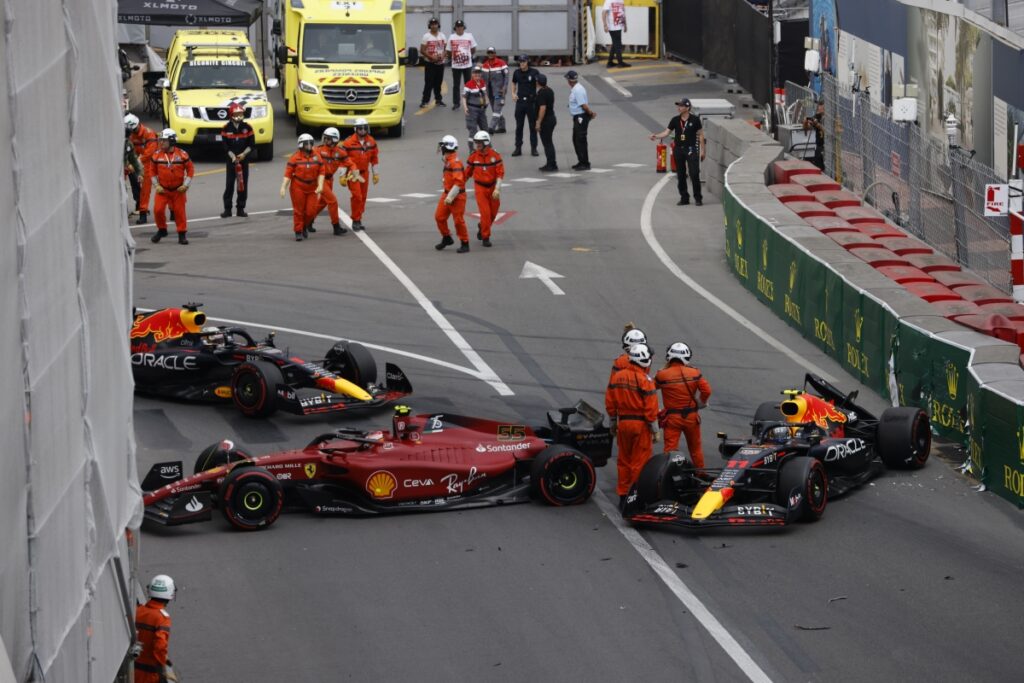F1 Drivers Demand FIA Sanctions for Red Flag Abusers in Monaco - Scandals and Penalties at Stake

As the Monaco Grand Prix looms closer, there's more than just the iconic track to be concerned about. F1 stars Carlos Sainz and George Russell have sounded the alarm, urging the FIA to clamp down on drivers who purposefully create red flags. History is no stranger to controversy at Monaco, with perhaps the most notorious incident taking place in 2006 when Michael Schumacher halted his car at Rascasse, inadvertently—or purposefully—interfering with Fernando Alonso's qualifying lap.
A History of Dubious Moves
This weekend promises to revive old wounds and create new tensions. Unforgettably, Schumacher’s maneuver saw him relegated to the back of the grid, a stern reminder of racing ethics. Today's drivers are now pressing for the FIA to take similar stern measures: that laps from those causing red flags be invalidated.
Sainz voiced the collective sentiment: “There have been very clear cases in street circuits where, between us drivers, we’ve spotted people on purpose generating red flags.” With the drivers’ internal assessment often differing from the official stance of the FIA, this weekend’s approach to policing will be under intense scrutiny.
Recent Controversies Add Fuel to the Fire
The recent past isn’t short of its own drama. Rewind to 2022 at Portier, where Sergio Perez's crash during Q3 seemingly blocked Max Verstappen from a pole position run. This sparked an in-camp disruption for Red Bull, leading Verstappen to repay the “favor” in Sao Paulo by hindering Perez’s track position. Though unproven, the incident underscores the necessity of rules to curb such exploitations.

Ironically, Perez himself is among those calling for stricter measures against these tactics. “I think it is how it should be,” he asserts, reflecting a growing consensus among the drivers who are frustrated by these strategic stoppages.
FIA's Possible Reactions
The discussion during Thursday's press conference shifted focus to how the FIA intends to handle such provocations. Esteban Ocon expressed that the governing body has been examining this issue and will likely monitor red flag infractions more closely. “We’ve discussed in some drivers’ meetings that a situation where a driver would cause a red flag would be monitored,” notes Ocon.
George Russell, who also serves as Director of the Grand Prix Drivers’ Association, echoed these sentiments. He even proposed that the FIA adopt a consistent penalty structure: “We have laps deleted all the time in qualifying for track limits. I think if you were to cause a yellow flag or red flag, you should probably have your best lap deleted.”
Lessons from Other Motorsports
This isn’t breaking new ground in motorsports. IndyCar, for instance, strikes times during qualifying for drivers who trigger yellow and red flags, withdrawing one lap for a yellow and the two best laps for a red flag. This established system ensures that such disruptions are penalized, maintaining fairness in the session.
For a track as narrow and challenging as Monaco, preserving the integrity of the qualifying session is crucial. Every driver aims for uninterrupted laps, especially given how pivotal qualifying performance is at this street circuit. As the drivers’ calls for reform grow louder, all eyes will be on how the FIA reacts.
The ramifications could redefine fairness and competition, setting a precedent for future races in one of motorsport's most illustrious venues. Whether through penalizing tactics that mar the sport or ensuring a fair play environment, the FIA’s decisions this weekend could echo throughout the entire F1 season.